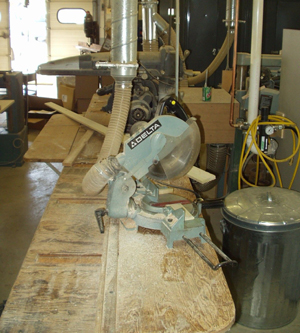Safety at Amherst
Amherst College is committed to protecting the health and well-being of all students, faculty, staff and campus visitors. This includes, under the Occupational Safety and Health Act (OSHA), the responsibility of Amherst to ensure an environmentally safe campus free of unnecessary hazards, as well as to establish clear guidelines for students, faculty and staff to follow proper safety procedures and wear protective equipment as required.
Bicycle Safety Information

Bicycle usage has steadily increased since the 1950s because of the increased public awareness in keeping physically fit, saving energy, and improving the environment. With our bike-friendly campus and surrounding area, it’s easy to understand this increased use, but with this fact the number of accidents and injuries will also rise.
Learn more about bicycle saftey.
Boat Safety and Operating Policy
The Office of Environmental Health & Safety offers courses on the safe and correct operation of boats on campus.
Learn more about Boat Safety and Operating Policy.
Hazard Communication/Global Harmonization
The Office of Environmental Health & Safety’s Hazard Communication Program informs and educates Amherst College faculty and staff about the hazards of the substances to which those employees may be exposed, establishes practices to comply with regulations, and helps to maintain a safe and healthy work environment.
Download the Hazard Communication Program.
Hand and Power Tool Safety

The Office of Environmental Health & Safety offers courses on the safe and correct operation of hand and power tools. Sign up for a course through Moodle course registration.
Playground Safety
Our office will conduct routine playground safety inspections to check for conditions and safety deficiencies, and will recommended corrective actions.
Download the Playground Safety Inspection Form.
Pool Safety
In accordance with the Massachusetts Department of Public Health and the National Lightning Safety Institute, Amherst College has outlined the following policies and procedures that must be followed when using Pratt Pool. Please click on the links below to find information on lightning safety protocols, lifegaurd requirements, and pool sanitiation procedures.
Amherst College Lifeguard Requirements
Personal Protective Equipment (PPE) Programs
Personal protective equipment, commonly referred to as "PPE", is equipment worn to minimize exposure to hazards that cause serious workplace injuries and illnesses. These injuries and illnesses may result from contact with chemical, radiological, physical, electrical, mechanical, or other workplace hazards. Personal protective equipment may include items such as gloves, safety glasses and shoes, earplugs or muffs, hard hats, respirators, or coveralls, vests and full body suits. Amherst College has institued the following PPE programs below.
Eye and Face Protection Program
Hearing Protection Program
Respiratory Protection Program
Thunderstorm and Lightning Safety
Protocol developed by Amherst College to reduce the risk for faculty, staff, students, and visitors in the event of storms that produce both lightning and/or thunder.